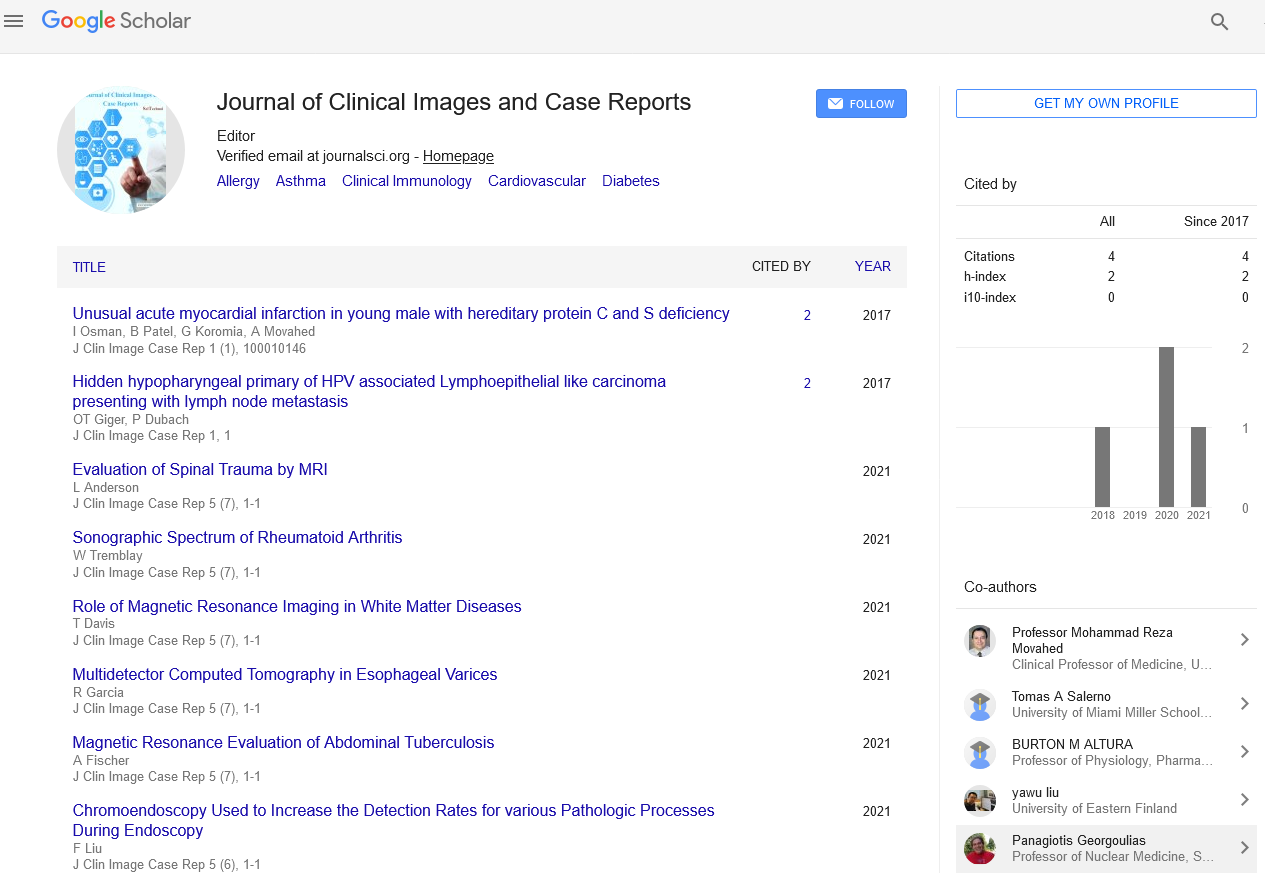Opinion Article, J Clin Image Case Rep Vol: 7 Issue: 3
Endocrinology: A Detailed Examination of Hormones, Glands, and Their Role in Human Physiology
Wei Yongfeng*
1Department of Endocrinology and Metabolism, Youjiang Medical University for Nationalities, Baise, China
*Corresponding Author: Wei Yongfeng,
Department of Endocrinology and
Metabolism, Youjiang Medical University for Nationalities, Baise, China
E-mail: yongfeng.w@gmail.com
Received date: 02 June, 2023, Manuscript No. CICR-23-107409;
Editor assigned date: 05 June, 2023, PreQC No. CICR-23-107409 (PQ);
Reviewed date: 19 June, 2023, QC No. CICR-23-107409;
Revised date: 26 June, 2023, Manuscript No. CICR-23-107409 (R);
Published date: 06 July, 2023, DOI: 10.4172/CICR.1000250
Citation: Yongfeng W (2023) Endocrinology: A Detailed Examination of Hormones, Glands, and Their Role in Human Physiology. J Clin Image Case Rep 7:3.
Description
Endocrinology is a branch of medicine and biology that focuses on the study of hormones and the endocrine system. Hormones are chemical messengers produced by various glands in the body that regulate a wide range of physiological processes.
Endocrine function
The endocrine system is a complicated system of glands that the production of hormones directly into the bloodstream. It will introduce the major components of the endocrine system, including the glands, hormones, and their critical roles in communication and co-ordination within the body.
Types of hormones
Hormones can be classified into different categories, such as peptide hormones, steroid hormones, and amine hormones. Each type of hormone interacts with specific receptors on target cells to elicit physiological responses. It will delve into the various types of hormones and their diverse functions in regulating metabolism, growth, reproduction, stress response.
Hypothalamus and pituitary gland
The hypothalamus and pituitary gland are essential components of the endocrine system, playing an important role in hormone regulation. It will explore the anatomy and functions of these glands, as well as the hypothalamic-pituitary axis, which governs the release of hormones from other endocrine glands.
Thyroid gland and thyroid hormones
The thyroid gland is important for metabolism regulation, growth, and development. It will explore the synthesis and functions of thyroidhormones (thyroxine and triiodothyronine) and the role of the thyroid gland in maintaining overall physiological balance.
Adrenal glands and stress response
The adrenal glands are involved in the body's response to stress and play an essential role in the production of cortisol and adrenaline. It will explore the functions of these hormones in the stress response and their impact on various bodily processes.
Pancreas and insulin
The pancreas is a dual-function organ, serving both endocrine and exocrine roles. In the endocrine function, it produces insulin and glucagon, which regulate blood glucose levels. It will delve into the physiology of insulin, its role in glucose metabolism, and its significance in diabetes mellitus.
Parathyroid glands and calcium homeostasis
The parathyroid glands are significant for calcium regulation and bone health. It will explore the role of Parathyroid Hormone (PTH) in maintaining calcium homeostasis and its interaction with other hormones involved in bone metabolism.
Hormonal imbalances and endocrine disorders
Disruptions in the endocrine system can lead to hormonal imbalances and endocrine disorders. The common endocrine disorders, such as diabetes mellitus, hypothyroidism, hyperthyroidism, and adrenal insufficiency, along with their clinical manifestations and management.
Diagnostic tools in endocrinology
Diagnosing endocrine disorders requires a combination of clinical evaluation and specialized tests, including hormone level measurements, stimulation tests, and imaging studies. The diagnostic tools and methods used by endocrinologists to assess and diagnose endocrine conditions.
Endocrinology plays a fundamental role in understanding how hormones and the endocrine system regulate various physiological processes in the human body. Gaining insight into the functions of hormones and their interactions helps in the diagnosis and management of endocrine disorders, eventually contributing to improved patient care and overall health outcomes. As the field of endocrinology advances, increasing the capability for developing specific therapies and interventions for endocrine-related diseases, therefore enhancing the psychological health of people across the world.
 Spanish
Spanish  Chinese
Chinese  Russian
Russian  German
German  French
French  Japanese
Japanese  Portuguese
Portuguese  Hindi
Hindi 